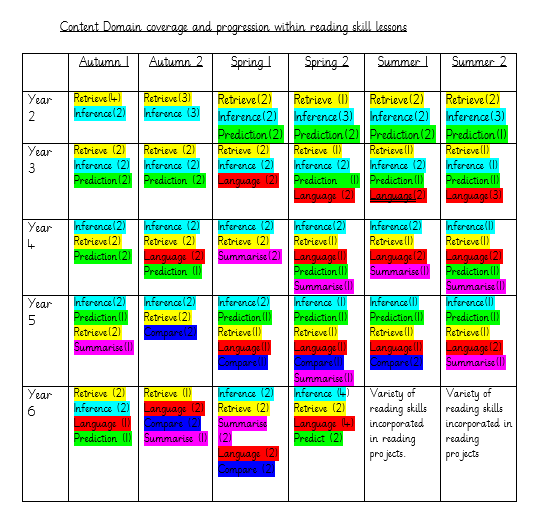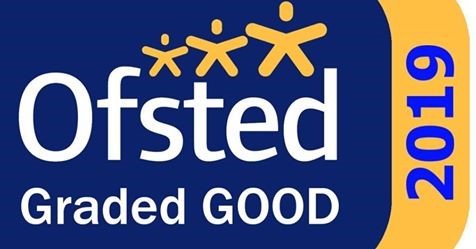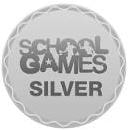|
Intent Statement
The reading programme of study at Great Linford Primary School is founded on the passion of teachers to ensure that all children develop a lifelong love of reading. Our Reading curriculum is underpinned by the National Curriculum for Reading within the English Curriculum. As Reading drives our curriculum, we create strong links with all areas of study using a range of engaging books and texts. Through this, our pupils develop a passion for reading and recognise how reading is critically important in whatever they choose to do in later life. Pupils will recognise the creativity and skill of authors of all genres, and through their understanding of great text will be supported in developing as authors themselves. From the earliest stages, pupils learn that the marks on a page or screen have meaning, and that by decoding that meaning they are able to experience a world beyond their own. Implementation
Reading is a core component of our curriculum and is taught daily. Teachers use our progression documents to underpin their planning as well as a range of reading resources including key texts linked to their Project work for that half term. Early Reading Early reading is developed through our phonics curriculum, Read, Write Inc and through accessing phonically appropriate books, at school and at home, supported by routine opportunities to read aloud to an adult. When phonically proficient, children apply their phonic skills in story books directly linked to their current phonics needs. We use these story books to ensure pupils access books that are matched to their developing ability to decode and interpret text. Teachers also plan for children to access unfamiliar and challenging text. Through their teaching, they enable pupils to develop their ability to explain their comprehension of that text. The level of planned and intentional support is reduced progressively when assessment confirms that pupils are developing the appropriate levels of fluency and comprehension, and motivation. Reading By Key Stage 2, the teaching focusses on developing comprehension and a clear understanding of different reading skills, applying them in a variety of question styles. There is an expectation that teachers enable pupils to use and rehearse their increasing range of reading skills when accessing texts across the curriculum and provide the opportunity for each child to have their own book to read along with the class. Teachers plan from the Reading Progression document. Lessons occur daily. We believe that home school communication is key and promote the importance of regular reading at home, inspiring children with our Golden Ticket reading challenge. We promote and instill a love of reading via the use of novels. Accelerated Reader is used throughout KS2 to support children with their engagement with reading. Through reading and taking quizzes on books, children build vocabulary, develop fluency, advance their comprehension of text of increasing difficulty and have the opportunity to communicate their ideas verbally and in writing. Importantly, it motivates students to read as they are excited and engaged with meeting their personalised targets and their ever increasing personal word counts. Throughout the school, there is dedicated time to promote a love of reading. Impact
Early reading is assessed within the phonics programme and through regular formative assessment when pupils are reading aloud to adults. Adaptations are made in response to pupils’ needs including children progressing through phonics groups based on 'stage not age'. As pupils develop fluency, formative assessment continues, with additional routine low stakes assessments of comprehension skills. Teachers monitor pupils’ choices of text, and use this information to recommend texts that will inspire as well as texts that will broaden the range of genres encountered. Pupil outcomes are evaluated and moderated against national expectations through statutory tests where applicable, NFER tests and otherwise through teacher assessments against curriculum expectations. Swift interventions by teachers in response to formative and summative assessments lead to any developing gaps being closed through adaptations to the teaching. Where significant needs are identified, our processes ensure that the SENCo provides prompt and suitable advice and support. Class teachers routinely evaluate the progress of pupils within and across lessons using the curriculum frameworks and reading assessment grids, located in the front of reading books, to make judgements. They use this information to analyse how effectively pupils are achieving or exceeding expectations and to adapt their planning accordingly. Teachers provide Subject Leaders with timely summative information about the outcomes of pupils in their class. Subject Leaders and Senior Leaders routinely evaluate the summative outcomes for their area of responsibility. They use this analysis to identify any necessary actions that develop the quality of provision in their subject, to moderate assessments, and to benchmark outcomes against expectations beyond their school. Progression
At Great Linford, it is clear, through our Reading progression document, which skills children master in each Year group. The bank of question stems and examples provided for each reading skill, which are incorporated into our reading skill lessons, gives children the opportunity to apply these to a variety of question styles. This supports children in developing their overall reading comprehension skills.
Author progression
Subject Days
World Book Day - 2nd March 2023 National Poetry Day - 23rd March 2023 Local Community Links
Supporting From Home
historical Information
|
Reading in our school... | ||||||||||||












